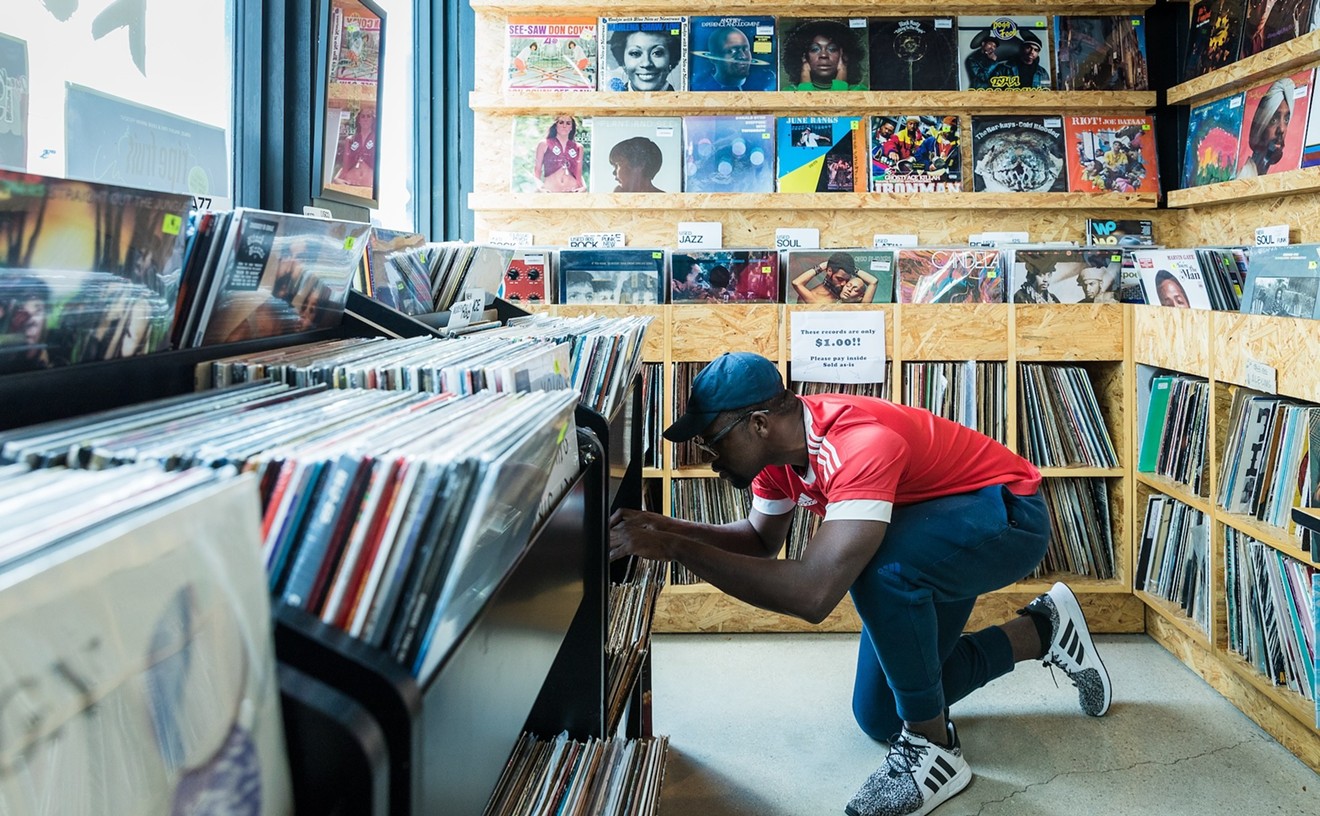After that year, the culture slowly froze over into a money-and-death-obsessed ice age. With the notable, blessed exception of OutKast, most of the art form's innovators were forced to toughen up (whatever happened to Dr. Dre's "Been There, Done That"?) or else be relegated to a scrap heap of underappreciated critic's darlings (Wyclef Jean) and oft-ignored backpackers (Kool Keith). Hip-hop became the domain of people looking for a quick paycheck, run by drug dealers and criminals who treated the art form as a money-laundering scheme and legitimately talented musicians who nevertheless stifled their artistry with increasingly limited perspectives on what was hot.
Now, finally, the hip-hop culture that is digested by millions of teenagers on MTV -- meaning, mainstream hip-hop culture -- is beginning to show signs of life beyond the interminable, soul-killing club bleats that have managed to bludgeon the world into submission, if not necessarily acceptance (when it came time to trumpet its MTV VMA coverage, lily-white People magazine chose to highlight J.Lo and Marc Anthony, not P. Diddy or Lil' Jon).
Kanye West, whose subject matter extends beyond guns-and-hos to include Christian testimonials ("Jesus Walks") and low-wage jobs ("Spaceship"), is currently receiving the lion's share of the credit for this new trend. Thanks to his great debut album, The College Dropout, West received numerous nominations for this year's Source Awards, scheduled to take place at the American Airlines Arena on Monday, October 11. Sponsored by controversial The Source magazine and now in its tenth year, the awards aren't exactly the Grammys, and the seemingly endless ceremonies have become something of an industry joke. However, in spite of the magazine' s ongoing beef with Dr. Dre's Aftermath camp (Eminem, 50 Cent, and G-Unit), it is a useful barometer of who holds clout in the mainstream rap world.
Interestingly, no one expected West to be the one to bring back conscious hip-hop: For years, The Roots, Talib Kweli, and Mos Def were prognosticated to be the art form's future heroes. But for various reasons, The Roots and Kweli have struggled to expand their audience, and Mos Def has spent most of his energy building a successful Hollywood acting career. (It will be interesting to see if his upcoming sophomore album, The New Danger, brings him superstar status.) But West's mixtapes and production work for Jay-Z lent him a massive industry buzz that helped The College Dropout become an unexpected pop success this year, garnering four Top 20 hit singles.
Of course, West rarely hesitates to remind people of his importance, even though his patented soul-on-45 sampling style has been around for years, with everyone from the RZA ("Shadow Boxin'") to MOP's Fizzy Womack ("Cold As Ice") taking a crack at it. For all of his color-coordinated designer gear and diamond-encrusted Jesus pendants, West doesn't exhibit the grace and poise that Lauryn Hill displayed in the mid-Nineties or Q-Tip had earlier that decade. Some would argue that West is the perfect balance between ghetto fabulousness and ghetto consciousness. Maybe it's financial considerations -- gotta make that money, baby -- that too often seem to tip his hand in the wrong direction.
In his September 20 review of the Fugees's surprise reunion performance at Dave Chapelle's block party, New York Times music critic Kelefa Sanneh defended West, who is drawing a growing chorus of dissenters within the rap industry who are weary of his perceived arrogance. Sanneh called West "the day's most important performer," elevating him above a lineup that included Mos Def, Talib Kweli, Common, The Roots, Jill Scott, Erykah Badu, dead prez, and even the Fugees.
I suppose that's praise that West would appreciate, but I humbly disagree. While I wasn't at that concert, I think that West is best viewed as the mainstream face of a movement that serves as a counter-narrative to P. Diddy tested, Source-approved rap. This history extends from De La Soul's Stakes Is High and the Roots's Illadelph Halflife, both angry, mournful albums that protested Puff Daddy's jiggification of hip-hop, to Jay-Z's recent work, particularly his 2001 opus The Blueprint. Jay-Z's evolution from gangster to complex artist is the most surprising development. By expanding his range to include racial profiling songs ("99 Problems") as well as the expected mack jams ("Change Clothes"), he is further proof that the commercial rap scene is finally moving, however slowly and fitfully, beyond its torturously boorish formula of groupie love, death by clubbing, and murder-plagued street corners.
Funnily enough, it's a movement that has gone on long before West emerged as hip-hop's latest hero. It is only now, however, that the world has begun to pay attention.










